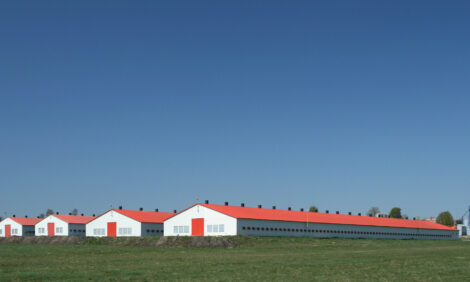



WTO Sets up Panel over China-US Poultry Dispute
GLOBAL - The World Trade Organization (WTO) has set up a panel to examine China complaint over US restrictions on Chinese poultry exports. The relevant Chinese Ministry has urged the panel to investigate the dispute impartially.The World Trade Organization decided on 31 July to rule on China's complaint over US restrictions on Chinese poultry exports, after Beijing accused Washington of "naked discriminative protectionism", reports AFP.
The WTO's members automatically set up a panel to examine the complaint at a meeting of its Disputes Settlement Body here, a trade source said, 11 days after China first requested its global trade watchdog to intervene.
"The panel was established," the source said.
Beijing says Washington is breaching international trade rules through several measures including an appropriations bill which it says result in a complete ban on imports of Chinese poultry.
"These unilateral measures fundamentally violate relevant WTO rules, significantly impede the ordinary Sino-US trade in poultry products, and substantially impair the rights and benefits that Chinese enterprises deserve to enjoy," China said in a statement released by its mission to the WTO.
"These measures are naked discriminative protectionism measures, which are strongly opposed by the Chinese government and enterprises," it added.
China and the United States halted imports of each other's poultry in 2004 over fears about the spread of bird flu, according to AFP.
Imports of some US poultry products to China have since been resumed but Chinese officials have complained that the United States continues to hold up reciprocal imports of Chinese poultry.
The United States argued that it had taken "an objective, science-based response" permitted under WTO rules while US authorities examine whether China's food safety system meets their level of health protection.
"We do not agree with China's assertions that the measure at issue amounts to a discriminatory or protectionist measure," the US said in a statement to the WTO meeting.
"Although we are disappointed that China has chosen to pursue a panel in this matter, we are confident that this dispute can be resolved through the WTO dispute settlement system."
"Therefore, we see no reason that this or any other dispute should have repercussions on any other trade matters between the United States and China," it added.
The decision by the WTO's member states came after both sides failed to resolve their dispute in talks.
A panel of experts is set up automatically on the plantiff's second request, in this instance after the United States vetoed China's first request for a WTO ruling on July 20, concludes the AFP report.
Ministry urges impartiality in China-US poultry dispute probe
China hoped experts of the World Trade Organization (WTO) would be "impartial" and "just" in handling the Sino-US poultry trade dispute, Ministry of Commerce spokesperson Yao Jian said on 31 July.
Official sources report Mr Yao's comments made in a statement after the WTO announcement it would set up the expert panel, at China's request, to investigate and rule whether a US ban on Chinese poultry imports violated WTO regulations.
The US has completely banned imports of poultry products from China since 2007 through its annual appropriation acts and other measures, said the statement.
These unilateral measures fundamentally violated WTO rules, and significantly disrupted the normal poultry meat trade between China and the United States, Mr Yao said.
Such measures are typical acts of protectionism, which the Chinese government and enterprises strongly opposed, he said.
The Chinese government was resolved to defend the legal rights of Chinese poultry meat producers under WTO rules.
It usually takes 45 days for a WTO expert panel to be set up, and panelists need at least six months to examine a dispute and give a final ruling.








